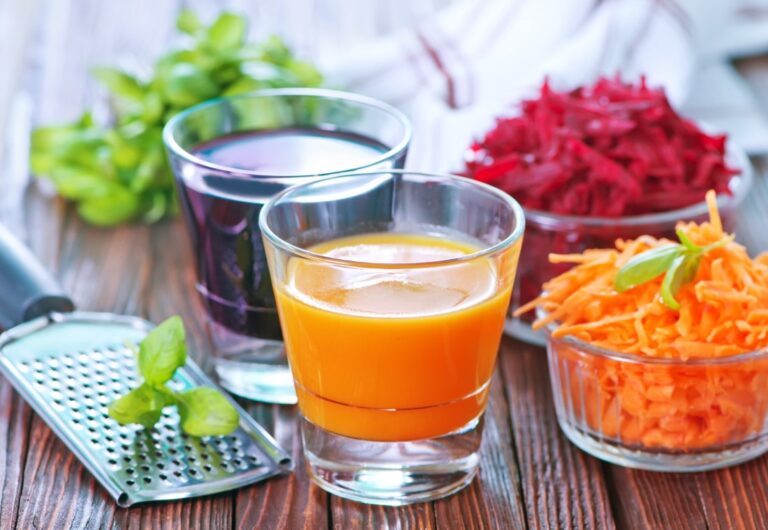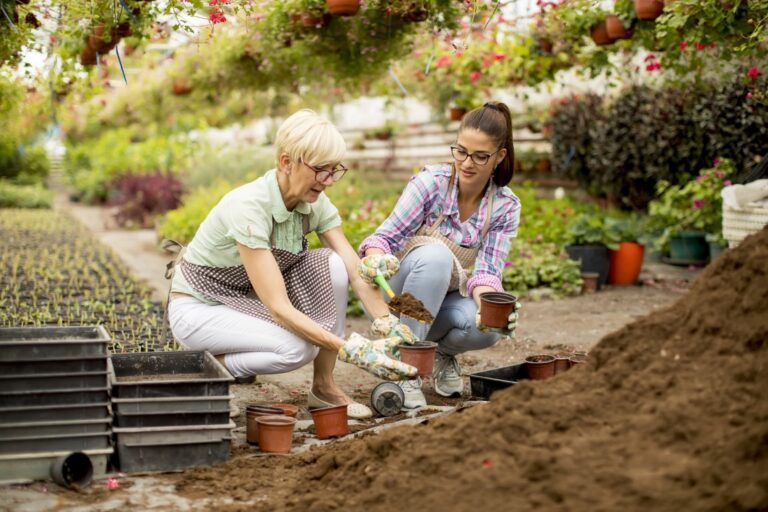Working in a garden is much more than just the pleasure of being surrounded by nature; it’s also an excellent way to care for both physical and mental health. Horticultural therapy, known as garden therapy, is a term describing the health benefits gained from regular contact with plants. The calming effect of gardening on one’s mind is invaluable—it reduces stress levels, improves concentration, but also alleviates anxiety. Working with soil, seeds, and plants helps restoring balance and harmony, enhancing overall well-being.
In addition to psychological benefits, gardening is a perfect physical exercise. Digging, planting, and pruning is a form of movement that helps burning calories, strengthening muscles, and improving stamina. Regular gardening activities support cardiovascular health and prevent from developing back problems.
Health on the Plate – Homegrown Vegetables
Health isn’t just about being deep in nature; it’s also about what we eat. Vegetables grown in one’s garden are rich in vitamins, minerals, and fiber. There’s nothing healthier than vegetables we’ve cultivated ourselves, with full control over their growth process, free from chemical pesticides and artificial fertilizers. Homegrown vegetables are the certainty of giving our bodies the very best.
Tomato – A Vitamin Bomb
Tomato is one of the most popular vegetables grown in Polish gardens. It is rich in lycopene, a powerful antioxidant that helps combat free radicals and reduces the risk of cancer. Additionally, tomatoes contain vitamins A, C, and K, which support the immune system, strengthen bones, and improve skin health. Regular intake of tomatoes can also help regulate cholesterol levels and blood pressure. You can choose ground tomato seeds from the Vilmorin variety, such as the Pin Wonder.
Carrot – A Source of Beta-Carotene
Carrot is well-known for its health benefits, especially the high contents of beta-carotene, which is converted into vitamin A. This vitamin supports eye health, helps prevent heart disease, and protects from the development of certain cancer types. Carrots are also a great source of fiber, which improves digestion and supports gut health. To start your own patch, try planting Nantes carrot seeds.
Zucchini – Lightness on the Plate
Zucchini is a great vegetable for those mindful of their figure. It’s low in calories but rich in B vitamins, vitamin C, and potassium, which supports heart function and helps regulate blood pressure. Regular consumption of zucchini supports maintaining healthy blood sugar levels. Also, its easy absorption makes it perfect for people with sensitive digestive systems. Try growing zucchini from the scratch.
Lettuce – A Wealth of Vitamins and Minerals
Lettuce is the basis of many gardens and healthy diets. It’s low in calories but packed with valuable nutrients like vitamin K, vitamin C, folic acid, and iron. Vitamin K supports bone health and blood clotting, while folic acid is crucial for pregnant women, aiding in proper fetal development. Regular intake of lettuce also helps cleansing the body and supports skin health. Try growing butterhead lettuce seeds.
Pepper – A Natural Source of Vitamin C
Pepper, especially red kind, is one of the richest sources of vitamin C, essential for boosting immunity, fighting infections, and maintaining healthy skin. Pepper contains also vitamins A and E, which support eye health and act as antioxidants, protecting the body from oxidative stress. Choose pepper seeds to enjoy their health benefits.
Herbs – Nature’s Medicines
Beyond vegetables, herbs offer notable health benefits. Herbs such as mint, basil, and rosemary not only enhance the flavor of the dishes but also have significant properties. Mint aids digestion and soothes stomach issues, basil has anti-inflammatory properties, and rosemary boosts memory and concentration. Fresh home-grown herbs are a natural way to enrich your diet with healthy and aromatic additions. Start with peppermint or lemon basil.
Conclusion – Health from Nature
Gardening isn’t just a means of relaxation and escaping from daily responsibilities; it’s also an investment in health. Home-grown vegetables ensure the highest quality produce, rich in vitamins, minerals, and antioxidants. Utilizing the natural resources from the garden is one of the best ways to embrace a healthy lifestyle, positively impacting our physical and mental well-being.




